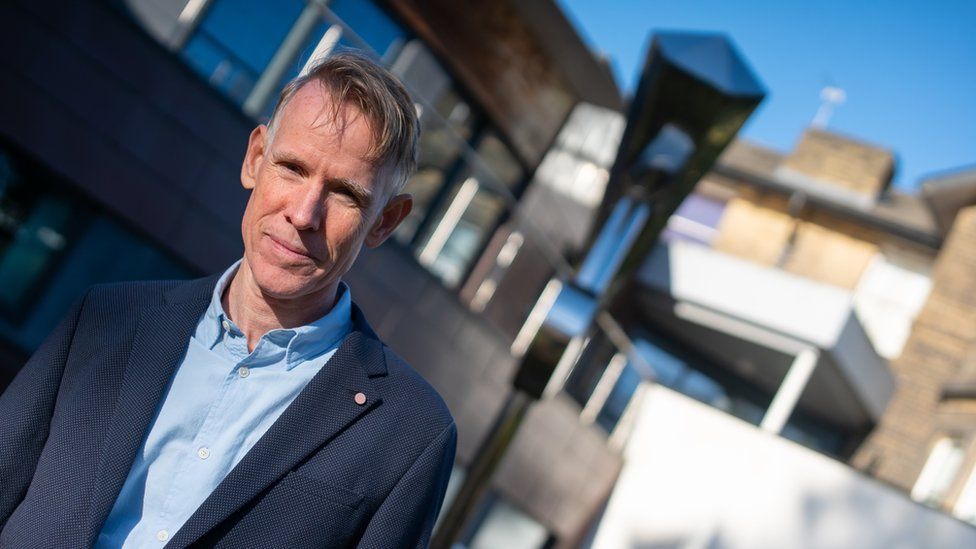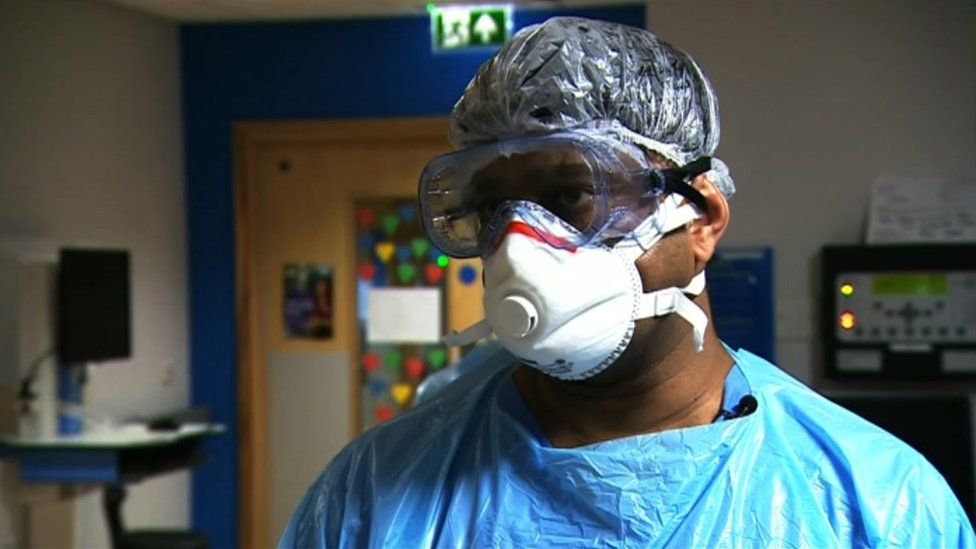Some Bradford schools are missing pupils because they travelled abroad with their families, who cannot now get back without paying a hefty bill for hotel quarantine. This is just one of the risks of travel during a global pandemic, says Dr John Wright of Bradford Royal Infirmary, who notes that British travellers may also have contributed to the spread of the virus.
A head teacher tells me that she has a problem with families stuck abroad, in countries on the UK's red list.
British residents who have been in one of these countries have to spend 10 days in quarantine in a hotel when they arrive back, at a cost of £1,750 for a single adult, and much more for families. Those who can't afford it are sometimes staying where they are - perhaps living free of charge with relatives - and this has left noticeable gaps in some classes.
In Bradford, families are mostly stuck in Pakistan, where the majority of the city's Asian population originates, but it's clear that many UK families are also unable to return from India and Bangladesh.
"We didn't know there was any chance of quarantine - we just went," says Inaya Hussain, who flew to Pakistan with her three children, aged between nine and 13, the week before lockdown, because her mother was seriously ill.
But on 9 April Pakistan was put on the UK's red list, because of rising numbers of Covid infections, as was Bangladesh. On 23 April, India was added too.
Lynette Clapham, head teacher at Grove House and Crossley Hall Primary Schools, says she's aware of 11 families who are currently abroad and unable to return, often because of the cost of quarantine.
Some travellers, however, have found a way round this: they are travelling from Pakistan to Turkey, spending 10 days in Turkey, and then returning perfectly legally to the UK from there. They are then able to quarantine at home for 10 days, rather than in a hotel.
But now it turns out that cases have been rising in Turkey too. A week ago the country went into a three-week lockdown as a result. Travel agents say travellers from Pakistan are still arriving in Istanbul en route for the UK, and that while Turkish residents are meant to stay at home, tourists are still allowed to go sightseeing.
The surge of cases in India, and to a lesser extent in Pakistan and Turkey, reminds us how connected our world is in the face of this pandemic. It is less a global village and more a global forest, with the Covid fire igniting one section of dry tinder just as it is extinguished somewhere else.
Front-line diary
Prof John Wright, a doctor and epidemiologist, is head of the Bradford Institute for Health Research, and a veteran of cholera, HIV and Ebola epidemics in sub-Saharan Africa. He is writing this diary for BBC News and recording from the hospital wards for BBC Radio.
Last year, during the first lockdown, when the UK had some of the highest rates of infection, I talked to patients and their families who were escaping back to their roots in Eastern Europe or Pakistan, seeking places of greater safety. I'm aware that in the second and third waves too people have been travelling to see their families, perhaps for funerals or weddings, or to look after elderly parents.
According to the Civil Aviation Authority, 32,000 people either took a direct flight from the UK to Pakistan in January, or flew from Pakistan to the UK. The figure was nearly 38,000 in February and 46,000 in March.
However, as we know from the initial spread of the virus from China to Italy and Spain in 2020, travel is a critical, yet highly controllable route of transmission.
I suspect that during each of our three waves we exported the virus from Bradford to low-incidence countries, and this may well have contributed to subsequent outbreaks in Pakistan, India, Eastern Europe or Turkey.
Nobody wants to be a prisoner on our island, but until we have effective global vaccine coverage and control of international transmission then importation of cases, and new variants in particular, remains a clear and present danger.
Red list restrictions for travellers from high risk countries may be disruptive and inconvenient but they are a crucial public health protection measure.
Quarantine
- A state, period, or place of isolation in which people or animals that may have been exposed to infectious disease are placed
- Origin: Late 15th Century (in sense "place where Jesus fasted for forty days")... The modern sense is from Italian quarantina "forty days", from quaranta "forty"
Source: Lexico.com
The good thing about our connected world, however, is that information also travels with ease.
In the hospital in February 2020 we were getting minute-by-minute updates from our medical colleagues in China, Italy and Spain, who were sharing the latest glimmers of evidence about risk factors and treatments via WhatsApp groups and social media. That speed of knowledge mobilisation saved countless lives.
Recently, my Bradford colleague Dr Dinesh Saralaya and his classmates from medical school in India have been helping one another by sharing what they've been able to find out about best practice since the start of the pandemic.
"We are sharing information about what has worked - Dexamethadone, the early use of C-pap [non-invasive ventilation with oxygen] and proning, for example," says Dinesh.
"Some of the drugs they're using there - Remdesivir and plasma treatment, for example - are hardly used here as they haven't proved effective in trials."
In the early 1990s my wife Helen and I were working in a rural hospital in Southern Africa when we noticed a rapid rise of HIV-related infections.
In the age before the internet, knowledge was a precious commodity that moved slower than the tortoises wandering through the Lubombo bush. Our observation of rising rates of HIV-related TB in 1991 required a letter written on an ancient typewriter, posted by aerogram and eventually published months later as a letter in the British Medical Journal.
There is a long-standing frustration from political leaders about how slowly innovation spreads in the NHS; a good idea in Bradford is rarely adopted in Bristol (and vice-versa). There is a whole field of "implementation science", with its own bespoke journals, dedicated to how we can overcome our natural, curmudgeonly instinct to ignore ideas that are not invented here. But the pandemic has demonstrated that in a crisis we are very good at rapid adoption and spread.
https://www.bbc.com/news/health-56873813




No comments:
Post a Comment